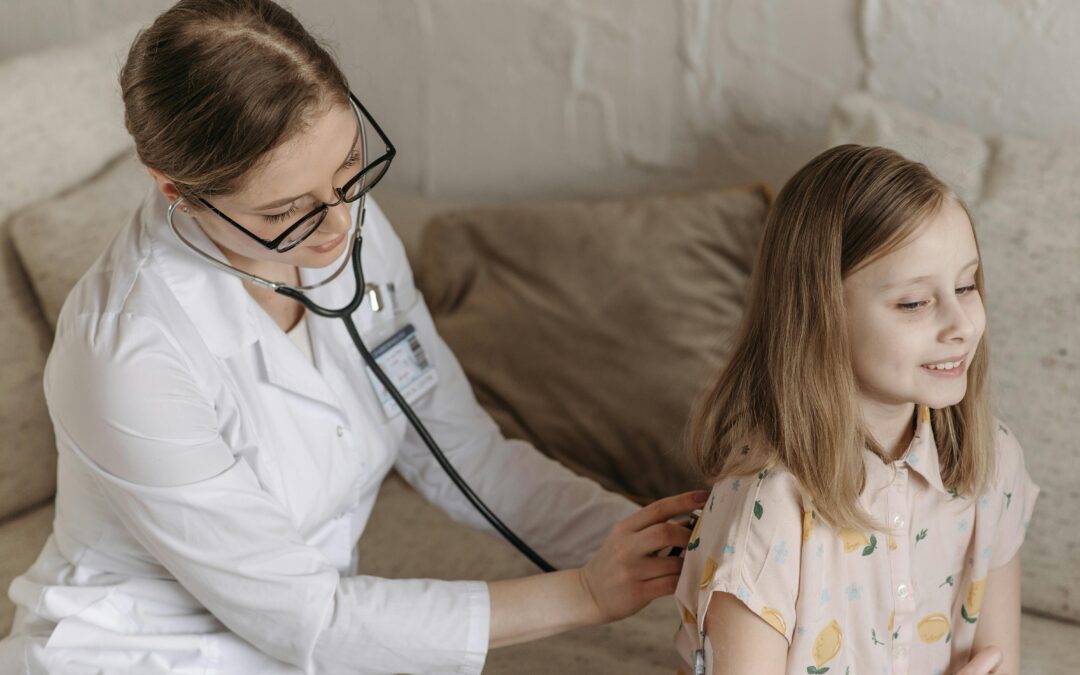Author: Anonymous
Pediatrics was my first encounter with human reality. The first language through which I learned how to heal.
It was a medicine of contact, of play, of kneeling down to meet childhood in its own world. I learned to crouch, to connect, to breathe together. The body spoke through silences and gestures that felt almost magical to me. I discovered how to listen to what was not being said, how to trust silence, how to interpret cries, looks, movements. Pediatrics taught me the art of being present—with patience. It showed me that my purpose was to accompany childhoods.
There was something in that world that made me feel at home. Maybe because I, too, was once a child with intense inner worlds, big emotions, and deep questions. Maybe because my inner child is still more alive than ever. Maybe because I wanted to be for others what I would have needed for myself: a presence that doesn’t judge, that embraces, that holds.
I was deeply happy as a pediatrician. Every bond, every gesture of trust, every step of progress moved me. And in those moments, something inside me was also healing. As if, through every child I cared for, I was also embracing the child I once was.
But then, my own world shattered. The diagnosis of bipolar disorder came suddenly, right in the heart of my professional journey. It was as if a veil had been torn from the inside, exposing a part of me I hadn’t yet fully understood. Suddenly, the doctor who had supported the emotional processes of others was now facing her own. Intense, confusing, painful. One that shook not only my health, but also my identity, my sense of worth, my way of being in the world.
The stability I had known turned unstable. Emotional exhaustion mixed with guilt, with the fear of not being able to continue practicing, with the shame that often surrounds mental illness—even within the medical field itself. I felt broken. But also, for the first time, deeply human. And in that vulnerability, something began to move. An inner calling. A need for more depth—for a different language to heal. One that would integrate everything I was living. One that would not deny my wound but transform it into a bridge.
I could no longer continue as before. Something inside me was asking for more space, not to replace what had been, but to expand it. From that experience, a question emerged that I couldn’t ignore: What if I could also support others from this new place? What if I could understand beyond the body, beyond the physical symptom, beyond what is visible?
Little by little, I began to understand that there was something to be studied beyond what is visible. I started to see the illness not as an obstacle, but as a motor—one that pushed me to meet myself in new ways.
I realized that being stable didn’t mean being perfect or untouched by pain; it meant knowing myself and knowing the illness intimately, building a relationship with it, listening to it, honoring its rhythms. And in that deep understanding, a new clarity emerged. That’s when I saw a path again. That’s when I saw myself—being a psychiatrist.
Accepting that psychiatry might be my new path was not easy. It has been—and still is—a process of grief. It means entering another kind of territory: one that’s more uncertain, denser, more inward. Sometimes nostalgia overwhelms me. But then I return to my center—that space where the emotional and the physical intertwine, where lived experience meets what has been inherited. And I realize that what I carry from pediatrics is not lost: it is transforming.
Choosing to study again meant letting go of a part of my identity that I love deeply. I am no longer the doctor with colorful markers, the one who turned physical exams into games, the one who received drawings instead of prescriptions. I am leaving behind a way of practicing medicine that I knew well that I had mastered, where I felt secure. To become a student again. To begin again.
I feel guilt. Nostalgia. Even fear of losing what I had built. But I also feel that my way of being with others is changing. And that too is healing both my world and the worlds of others. Today, I know I’m not leaving pediatrics behind. I carry it with me. In every story I listen to, in every unspoken sorrow I accompany, the pediatrician in me will still be present. Only now, I’ll be able to reach other places. Other dimensions. With different tools—and above all, a new way of seeing.
I’m not leaving the magic behind. I’m allowing it to grow. I’m planting a new way of healing.Fuller. More conscious. More mine.
The content of the International Bipolar Foundation blogs is for informational purposes only. The content is not intended to be a substitute for professional medical advice, diagnosis, or treatment. Always seek the advice of your physician and never disregard professional medical advice because of something you have read in any IBPF content.


